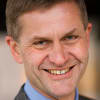“Energiewende,” the transformation of the energy system in Europe’s leading industrial power has made Germany a global leader in renewables and energy efficiency. Can Germany take this to the global stage — forging an international energiewende?
The progress in human development over recent decades has been unprecedented in history. The world is more peaceful and people are in general richer, healthier and better educated than ever before. But the state of Mother Earth is not so equally positive. Plants and animals are being driven to extinction at a rate not seen since the age of the dinosaurs, and the planet is getting warmer.
Every country cannot do everything. But all can do something. In the latest peer review from the Organization for Economic Cooperation and Development on its development aid, Germany is both applauded and criticized. The country is an international leader on development: Along with the United States, the United Kingdom and Japan. It is one of the biggest bilateral donors, contributing with an all-time high of more than $16 billion. For the climate and for the poor people of the world, it is important how Germany decides to spend its aid money.








